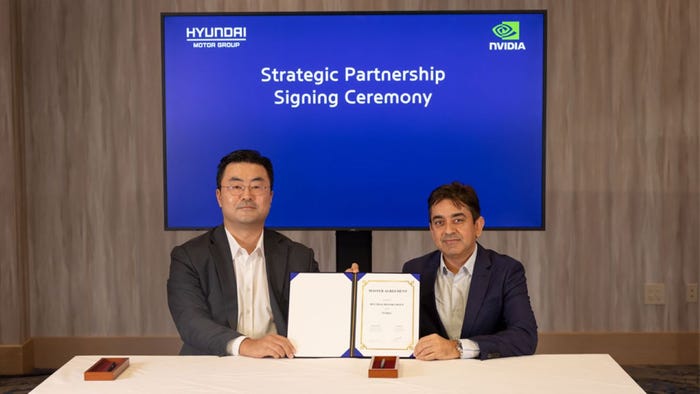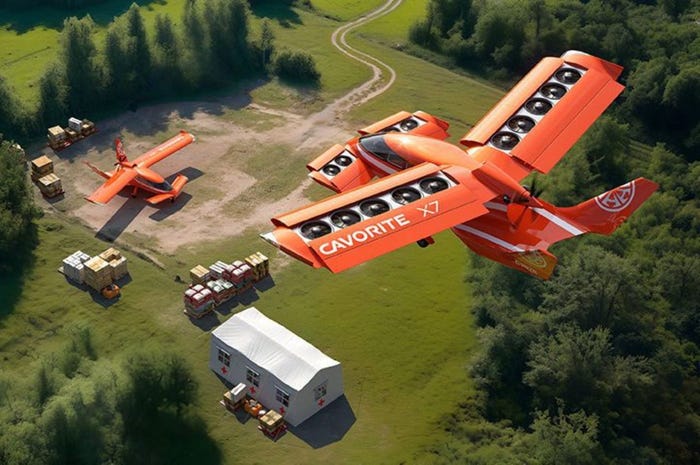Most Read: Flying Taxi Startup Expands into Hong Kong, Cruise Pulls Plug on Self-Driving Taxi
Also inside, Waymo eyes self-driving airport pickups, plus, Toyota brings ‘mobility for all’ to 2024 Paris Olympics

Here are the most-read stories on IoT World Today this week:
Flying Taxi Startup Expands Into Hong Kong
Air taxi company EHang Holdings in China has signed an agreement with one of Hong Kong’s largest transportation companies to promote the operation of EHang’s pilotless eVTOL (electric vertical take-off and landing) vehicle in Hong Kong, Macau and other cities in China.
The agreement with KC Smart Mobility Company, a subsidiary of KCBH, aims to use the EHang EH216-S pilotless electric aerial vehicle (EAV) for travel services.
EHang recently signed an agreement with China Southern Airlines General Aviation Company to create operation demonstration sites for low-altitude tourism and flight services.
The companies plan to create sites for flying EHang’s EAVs at Zhuhai Jiuzhou Airport and the Zhuhai Chimelong Ocean Kingdom.
Read more about the partnership >>>
Air Taxi Company Shows Full-Scale Prototype; Embraer Backed
Electric aerial vehicle (EAV) maker Eve Air Mobility introduced a full-scale eVTOL (electric vertical takeoff and landing) prototype at the Farnborough Airshow in the U.K. this week.
Eve Air also completed the selection of the primary suppliers for its EAV prior to entering its testing phase, according to the company.
The test phase includes flight capabilities and safety features for Eve, which has pre-orders for 2,900 of its electric flying vehicles, according to the company.
The Eve eVTOL vehicle uses eight propellers for vertical flight and fixed wings to fly on cruise, with no change of component positions for flight, and has a range of 60 miles.
Learn more about Eve’s air mobility efforts >>>
Waymo Wants to Expand Self-Driving Taxis at San Francisco Airport
Waymo is trying to expand its self-driving taxi operations in San Francisco to cover the city’s airport.
Emails obtained by a Freedom of Information Act request and seen by tech outlet TechCrunch reveal the extent of the company’s ambitions.
They show how the firm, owned by Google parent Alphabet, would like to carry out pick-ups and drop-offs at San Francisco International Airport (SFO), which would constitute another significant landmark following a major extension in its local coverage earlier this year.
The company cites its experience at Sky Harbor International Airport in Phoenix, Arizona, where it launched in 2022 – and is now offering curbside pick-ups – as evidence of its readiness to operate at SFO.
Find out why autonomous vehicles pose a challenge for airport pickups >>>
GM Pulls Plug on Cruise Origin Self-Driving Taxi
General Motors has pulled the plug on its long-awaited Cruise Origin purpose-built self-driving taxi.
Confirmation of the culling of the radical autonomous vehicle (AV) – which does not have conventional controls – was confirmed in a letter to shareholders by GM’s CEO Mary Barra.
The decision is the latest blow for embattled Cruise, which is only now beginning to find its feet again after a disastrous few months following an incident in San Francisco last October involving one of its self-driving Chevrolet Bolts which left a pedestrian seriously injured.
Announcing the decision, Barra said: “The Cruise team will simplify their path to scale by focusing their next autonomous vehicle on the next-generation Chevrolet Bolt, instead of the Origin.
Read on and find out why the Cruise Origin got the axe >>>
Toyota Brings ‘Mobility for All’ to 2024 Paris Olympics
Japanese automaker Toyota will provide mobility solutions at the 2024 Paris Olympics, including a fleet of electric vehicles to transport athletes to various venues.
As the Olympic Games’ mobility partner, Toyota wants to provide “mobility for all,” ensuring athletes, fans and officials get fair and equitable transport across the city.
Toyota will bring 250 Accessible People Movers (APMs) to the Olympics that have been specially designed for use in Paris.
The automaker is also providing wheelchair e-pullers, 500 Mirai vehicles powered by hydrogen fuel cells and mobility scooters for event employees with disabilities.
Take a look at the mobility solutions Toyota is bringing to the 2024 Paris Olympics >>>
About the Author
You May Also Like
.jpg?width=100&auto=webp&quality=80&disable=upscale)
.jpg?width=400&auto=webp&quality=80&disable=upscale)






